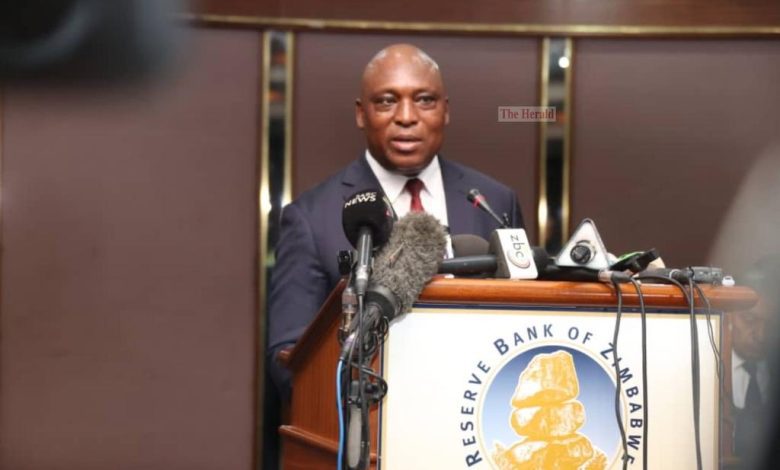‘Huge parallel market premium threatening exports’
THE Confederation of Zimbabwe Industries (CZI) says the distortionate impact of the parallel market exchange rate in the economy is becoming a big threat to exporting businesses as it eats into the viability of exports. The sentiment comes as the Government has threatened punitive measures against businesses and individuals that are dipping their hands on the illegal money market, which has been blamed for eroding consumer purchasing power and reversing economic gains achieved so far.
Despite the comprehensive fiscal and monetary reforms that have been credited for bringing about the favourable economic fundamentals thus far, authorities say parallel market indiscipline has remained rampant.
On Wednesday, Vice President Dr Constantino Chiwenga urged Zimbabweans to have confidence in the local currency for it to retain value against other currencies, stating that some few malcontents were driving the parallel market where foreign exchange arbitrage has become their lucrative business at the expense of stability in the economy.
In its recently released Business and Economic Intelligence Report for the second quarter and halt year, the largest industry body said its members were being negatively affected by the huge parallel market premium.
This week the exchange rate is pegged at US$1:$87,67 at the weekly official forex auction compared to margins of as high as US$1:$150 on the parallel market.
“The parallel market premium, which has since risen to about 63 percent, is considered a tax by exporting businesses, as they offload the surrender portion of their export earnings at the auction exchange rate while they conduct their business in a cost environment determined by mixed rates depending on where their suppliers of goods and services are sourcing forex,” said CZI.
“The best-case scenario being that they are charged at a blended rate of the auction and parallel market and worst-case scenario being the application of the parallel market rate.
“Thus, the huge parallel market premium is dampening the motivation for exporting business as it eats into the viability of exports.”
Due to the perception that there is now cheap foreign currency at the auction, CZI has warned that those businesses that would otherwise have not participated in preference for strengthening local value chains can now end up participating to enjoy access to foreign currency. This could likely pile pressure on the forex auction.
“Thus, adverse selection risk can easily reverse the import substitution benefits that are central to NDS1 and Vision 2030,” it said.
CZI said its members have noted with concern that the official exchange rate has not been depreciating in line with the inflation differentials with main trade partners.
“In general, it is expected that the currency in a country where there is higher inflation rate would depreciate while the currency in a country with a lower inflation rate appreciates,” it said.
“However, despite a very high inflation rate period, going as high as 837,5 percent in July, 2020, the official exchange rate remained firm to the USD, hence concerns about overvaluation.”
Nearly US$2 billion has been allotted to businesses at the forex auction since its commencement last year in June, according to the Reserve Bank of Zimbabwe (RBZ).
Business leaders have also confirmed benefitting from the improved access to forex and yet prices on the shelves are indexed in parallel market rates.
CZI has said the major challenge to this was that the forex allocations have not been accompanied by real time disbursements over the past months with the lag between allocation and disbursement increasing over time from initially one or two weeks to a about eight weeks.
“The foreign currency backlog is coming at a time when the relations between foreign suppliers and local industry was now on the mend, following the positive performance during the early days of the auction,” said the industry body.
“By taking place at a time when legacy debt issues have not been fully resolved, the backlog threatens to erode the confidence, which industry had managed to build with the foreign suppliers over the past months.”
The RBZ has pledged to clear the nearly US$200 million backlog by end of September and last week, the Treasury revealed that US$70 had already been released to clear the gap. Urgently addressing this challenge is critical, said CZI, citing fears that moral hazard and adverse selection risks were beginning to creep in due to perceptions about the foreign currency auction.
“Moral hazard happens whenever an entity undertakes an activity that would otherwise have been risky to take mainly because there are some incentives to do so,” said the industry body.
“For example, some products, which under normal circumstances could not have been imported can now be imported due to perception that there is ‘cheap foreign currency’.
The import appetite can be easily increased due to this perception of cheap foreign currency.
“Adverse selection occurs when participants that have more information take advantage of opportunities that were designed for everyone. In other words, wrong groups end up being selected to exploit some advantages, which were open for all.” The Herald











